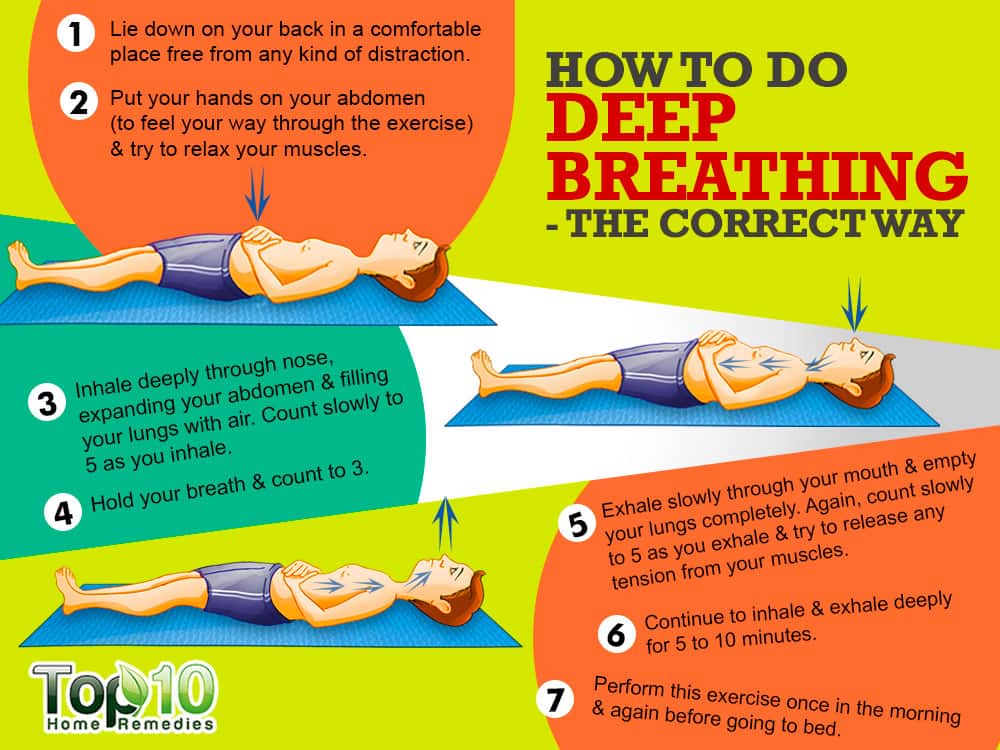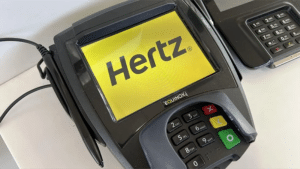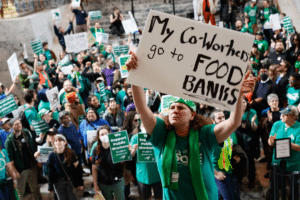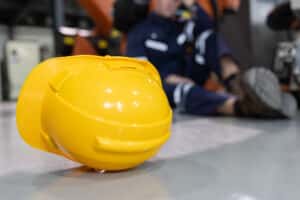
Congratulations. You’ve just relaxed your body’s central nervous system.
Controlled and mindful breathing, like the simple cycle described above, have been proven to reduce stress, increase awareness and enhance your immune system. For thousands of years, yogis have practiced breath control, or pranayama, to boost concentration and improve vitality. The Buddha promoted breath-meditation as a pathway to enlightenment.
Modern science is just now beginning to conclusively show that the benefits of these ancient techniques are real. Studies have shown, for example, that controlled breathing can reduce symptoms of anxiety, insomnia, PTSD, depression and attention deficit disorder.
“Breathing is massively practical,” says Belisa Vranich, a psychologist and author of “Breathe,” a book scheduled for publication in December. “It’s meditation for people who can’t meditate.”
The exact mechanism by which breathing promote healing is still being studied by scientists. One theory has proposed that controlled breathing alters the response of the our autonomic nervous system, which regulates unconscious processes like our heart rate and digestion, says Dr. Richard Brown, a professor of psychiatry at Columbia University and co-author of “The Healing Power of the Breath.”
Consciously altering our breath sends a signal to the brain that changes the parasympathetic branch of the nervous system; this, in turn, can slow heart rate and digestion, while enhancing the sense of calm and production of hormones like cortisol.
Many illnesses and conditions like anxiety and depression are triggered by stress. “I have seen patients transformed by adopting regular breathing practices,” says Dr. Brown, who teaches breathing workshops in Manhattan and around the world.
When we take slow, regular breaths, our brain receives the message that things are A-OK, hence activating the parasympathetic response, said Dr. Brown. If, on the other hand, we take shallow rapid breaths – or worse, hold our breath – the sympathetic response is turned on. “If you breathe correctly, your mind will calm down,” said Dr. Patricia Gerbarg, professor of psychiatry at New York Medical College.
Dr. Chris Streeter, an professor of psychiatry and neurology at Boston University, has also published recent studies that measured the impact of daily yoga and breathing on people suffering from clinical depressive disorder.
Following 3 months of daily yoga and controlled breathing, the patients’ depressive symptoms dropped significantly, while their rates of gamma-aminobutyric acid, a brain chemical that serves in an anti-anxiety capacity, had increased. This research was presented last year at the International Congress on Integrative Medicine and Health in Las Vegas. “The findings were exciting,” she said. “They show that a behavioral intervention can have effects of similar magnitude as an antidepressant.”
Finally, controlled breathing has been shown to affect the immune system. Medical professionals at the University of South Carolina divided a group of 20 adults into two groups: the first group was instructed to complete two sets of 10-minute breathing exercises, while the second group read a book of their choice for 20 minutes. Researchers tested the subjects’ saliva at different intervals during the activity: they found that the breathing exercise group’s saliva had much lower levels of three cytokines that are linked to inflammation and stress. Those findings were published in the journal BMC Complementary and Alternative Medicine in August.
Here are three basic breathing exercises to try on your own.
Coherent Breathing
If you have the time to learn only one technique, this is the one to try. In coherent breathing, the goal is to breathe at a rate of five breaths per minute, which generally translates into inhaling and exhaling to the count of six. If you have never practiced breathing exercises before, you may have to work up to this practice slowly, starting with inhaling and exhaling to the count of three and working your way up to six.
- Sitting upright or lying down, place your hands on your belly.
- Slowly breathe in, expanding your belly, to the count of five.
- Pause.
- Slowly breathe out to the count of six.
- Work your way up to practicing this pattern for 10 to 20 minutes a day.
Stress Relief
When your mind is racing or you feel keyed up, try Rock and Roll breathing, which has the added benefit of strengthening your core.
- Sit up straight on the floor or the edge of a chair.
- Place your hands on your belly.
- As you inhale, lean forward and expand your belly.
- As you exhale, squeeze the breath out and curl forward while leaning backward; exhale until you’re completely empty of breath.
- Repeat 20 times.
Energizing HA Breath
When the midafternoon slump hits, stand up and do some quick breathwork to wake up your mind and body.
- Stand up tall, elbows bent, palms facing up.
- As you inhale, draw your elbows back behind you, palms continuing to face up.
- Then exhale quickly, thrusting your palms forward and turning them downward, while saying “Ha” out loud.
- Repeat quickly 10 to 15 times.




